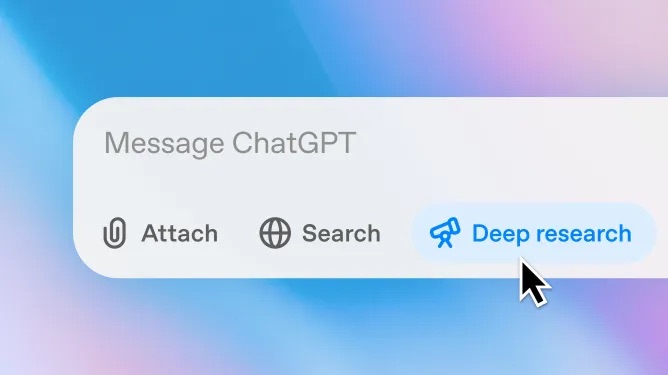
OpenAI has introduced a revolutionary feature called ChatGPT Deep Research, designed to enhance the capabilities of its AI-powered web search. This new addition enables users to perform multi-step research, backtrack, and respond to real-time information, marking a significant advancement in the realm of artificial intelligence.
Powered by a fine-tuned o3 model, ChatGPT Deep Research aims to assist users in conducting thorough investigations across a wide range of topics. OpenAI asserts that this feature can generate graphs and cite “hundreds” of sources and passages, offering users a wealth of information at their fingertips.
The o3 model was rigorously tested using Humanity’s Last Exam, which comprises over 3,000 expert-level questions. The testing revealed an accuracy rate of 26.6%, highlighting both the potential and ongoing challenges associated with AI-driven research tools.
Currently, ChatGPT Deep Research is available exclusively to ChatGPT Pro users, who are limited to 100 queries per month. OpenAI plans to extend support to Plus and Team users in the near future, followed by Enterprise users. However, the feature’s availability is geographically restricted, with no timeline provided for customers in the U.K., Switzerland, and the European Economic Area.

OpenAI has developed a special version of its o3 model specifically trained through reinforcement learning on “real-world tasks requiring browser and Python tool use.” This optimization allows the model to leverage reasoning skills to search, interpret, and analyze vast amounts of text, images, and PDFs found online. As OpenAI elaborated, it is capable of pivoting as needed in response to the information it encounters.
In its current state, ChatGPT Deep Research operates as a web-only experience, but OpenAI plans to integrate it into mobile and desktop applications later this month. OpenAI ensures that every output generated by ChatGPT Deep Research will undergo auditing and review to maintain quality and reliability.
Despite its promising features, OpenAI has acknowledged that ChatGPT Deep Research has limitations. Users may encounter mistakes and incorrect inferences as the AI navigates complex queries. In fact, testing by TechCrunch revealed that ChatGPT Search sometimes produced less useful results than traditional Google Search for specific queries.
OpenAI emphasizes that this tool is especially beneficial for professionals involved in intensive knowledge work across fields such as finance, science, policy, and engineering. These individuals require thorough, precise, and reliable research to support their decisions.
Furthermore, OpenAI is actively working on enhancing ChatGPT Deep Research by adding embedded images, data visualizations, and other analytical outputs in the near future. This development aims to broaden the feature’s functionality and improve the user experience.
“This version of the upcoming OpenAI o3 model is optimized for web browsing and data analysis,” – OpenAI
What The Author Thinks
OpenAI’s ChatGPT Deep Research signifies a bold step towards making AI-driven research more accessible and functional for a variety of professional fields. Although it currently has limitations, the ongoing enhancements and planned features suggest that it could soon become an indispensable tool for researchers and professionals who require depth and precision in their work. As AI technology continues to evolve, OpenAI’s commitment to refining its products promises to yield new opportunities for users to harness the power of advanced AI in their everyday tasks.
Featured image credit: FMT
Follow us for more breaking news on DMR
